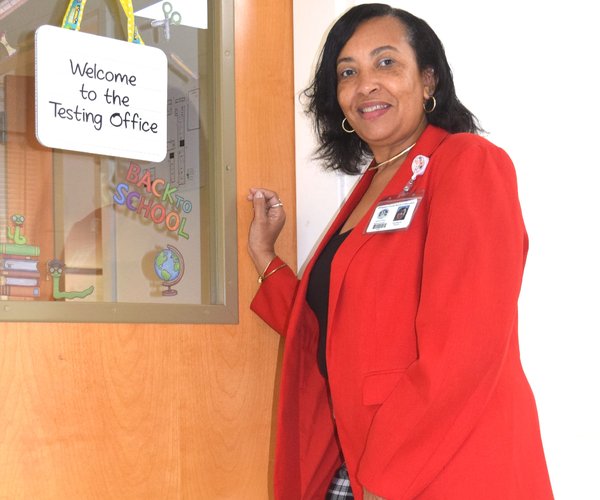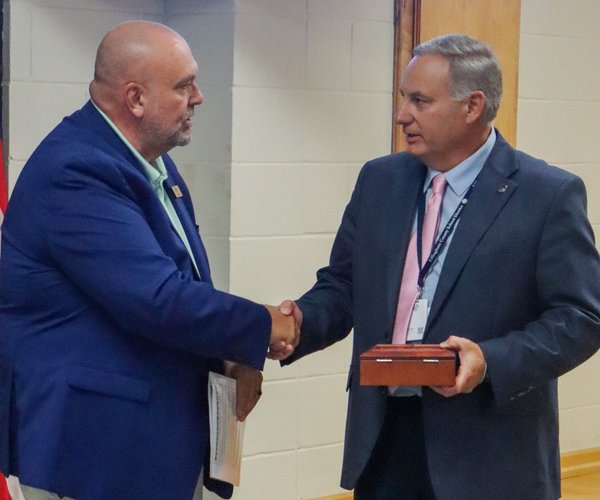Expenses in the Effingham County School System’s fiscal year 2016 budget exceed revenues by $4.1 million, according to school officials’ latest projections.
FY16 expenditures have been revised to $92.8 million, up from the $91.3 million estimate presented to the board of education last month. Projected revenue is $88.7 million.
“So we’re in the hole $4 million, if you want to think of it that way,” said Slade Helmly, the school system’s executive director of administrative services.
Helmly and Effingham Schools Superintendent Randy Shearouse both reiterated several times during last week’s school board meeting that the budget is its initial stages and will continue to be revised. The board is scheduled to adopt the budget and millage rate at its June 18 meeting, and the new fiscal year will begin July 1.
“It’s really early, and we’ve seen it worse than it appears here in the past few years,” Helmly said.
Contributing to the budget increase is the addition of 15 teaching positions throughout the school district and 14 bus driver jobs. Helmly offered a cost-saving option of adding about a dozen teachers rather than the proposed 15, thus trimming approximately $200,000 from the budget.
The latest budget draft also includes hiring a second assistant principal for each of the county’s three middle schools. The board of education is reinstating those positions after cutting them a few years ago following the economic downturn.
“The board made that a priority early on in the budget process,” Shearouse said. “We were committed to making that change.”
Also in the budget is a 3-percent pay raise for all school system employees. Other increases in expenses include step raises for eligible teachers, a mandated increase in the employer match for the Teachers Retirement System of Georgia and a hike in health insurance premiums for non-certified employees.
One possibility is that employees will receive a raise, but of less than 3 percent. Each 1-percent increase in salary adds approximately $700,000 to the budget, Helmly pointed out.
“All options are on the table,” Shearouse said. “We, of course, hope the local tax digest goes up and we have some good news there.”
The county tax digest is on a gradual climb after plunging from $1.726 billion in 2010 to $1.5 billion just two years later. School officials might not receive the FY16 tax digest figures “until probably June,” Helmly said.
The tentative budget for the coming year has a rollback millage rate of 16.312, which is projected to generate just over $25 million in property tax revenue for the school system. Every mill of taxation the school board assesses is worth about $1.5 million, according to Helmly.
The budget became tighter last week when the Effingham County School System learned it will receive just under $6 million in equalization, funding the state distributes purportedly to narrow the gap between wealthy and poor districts. The FY16 allotment is a $945,000 reduction from Effingham’s equalization grant for the current budget.
“Really the only explanation that we can come up with is Effingham County is getting relatively wealthier per FTE (full-time equivalent student) than our counterparts from the state,” Helmly said. “I guess that could tell us that our digest is rebounding quicker than other districts.”
Shearouse stated that some of the state’s largest and fastest-growing school systems “take a big chunk” of the equalization money. He used as an example Gwinnett County Public Schools, which have grown to about 177,000 FTEs — roughly 16 times the size of the Effingham County School System’s 11,000-student enrollment.
In turn, Shearouse said, Gwinnett will receive about $88 million in equalization funding for FY16. He added that Effingham school officials e-mailed the state Department of Education for an explanation why the district’s equalization was cut by nearly $1 million.
“It’s very difficult to tell why,” Shearouse said, “because you have to compare yourself with other counties, and you don’t know where they’re going as far as their tax digests, their millage rate, the number of students they have — all those things have to be considered. And as the state continues to grow, unless you put more money into that (equalization) pool, you don’t have more to go around.”
The Effingham County Board of Education likely will dip into its general fund reserve to help offset the budget shortfall. The fund balance is calculated to be a little more than $9 million at the end of the current fiscal year, in line with school officials’ goal to keep it around 10 percent of the budget figure.
The school board approved using $2 million from its fund balance in this year’s budget but is on track to spend just $1.1 million of that, according to Shearouse.
“So that certainly helps us as we look forward to next year’s budget,” he said.
School budget calendar
• April 16: School board meeting, 7 p.m. – receive preliminary property tax digest from county tax assessor
• May 21: School board meeting, 7 p.m. – public comment on FY 16 budget, tentative approval of budget and millage rate
• June 18: School board meeting, 7 p.m. – public comment on budget, final approval of budget and millage rate
• July 1: Fiscal year 2016 begins





